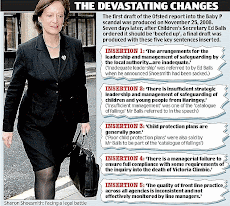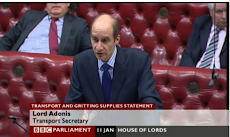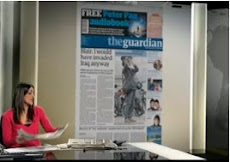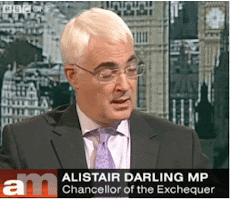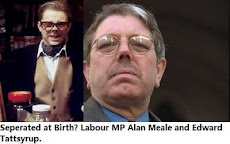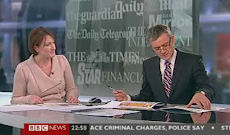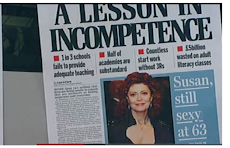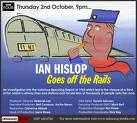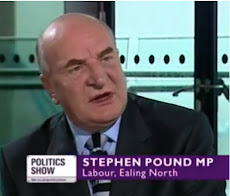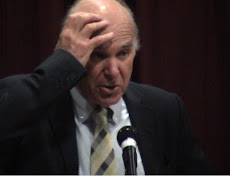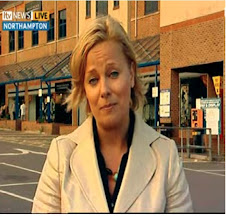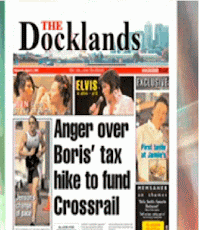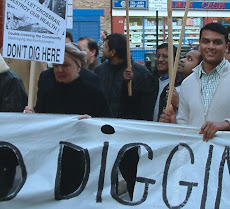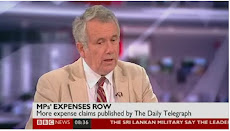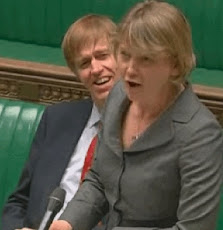Dear Boris
Banks must be one of the most effective lobby organisations in modern times. You probably saw the recent IMF paper "A fistful of dollars; lobbying and the financial crisis", which showed the more a bank spent on lobbyists, the riskier its lending. You are allowing yourself to be used as a wholly owned lobbyist of the British Bankers' Association and the Corporation of
London – and if and when the balloon goes up again with another financial crisis, you will be left high and dry.
If Britain allows its banking sector to grow as rapidly over the next decade as in the last, with so much of its revenue diverted not to building up its capital but to paying extravagant bonuses, when the next crisis comes it will overwhelm the British state.
We could just about get through this crisis with £1.3 trillion of liquidity, guarantees and capital injections into the banks. Next time round – in five or 10 years' time if nothing changes – Britain simply could not pay the bill. We would have to print money or endure an even deeper recession, and that will include Londoners.
Andrew Haldane, executive director of the Bank of England, calls it a "doom loop".
Of course we want a vibrant banking sector in London, but we also need it to be sound. For more than a decade, banks and investment banks have got used to paying out routinely up to 50% of their revenues as bonuses. As the Bank of England says, if they had paid just 20% less in bonuses and dividends between 2000 and 2008 they would have had £75bn more capital – more than the taxpayer put in. They must change in future.
Tax on bonuses is part of a much bigger story, of trying to create a sounder banking industry. Bankers may think there is some escape – but to where? Smaller financial centres like Singapore or Hong Kong lack the economic muscle to support big banks when things go wrong, so depositors will vote with their feet. The banks' business will dissolve.
There is nowhere in the EU with a better infrastructure or regulatory/tax framework kinder than London's. And President Obama has announced a 10-year levy on banks because of their "obscene" bonuses – hardly friendlier than here.
You are being taken for a ride. We may lose a few bankers as the sector shrinks, which is what happens in capitalism when businesses make mistakes. But instead of defending the indefensible, why not be on the side of a sounder banking system and a more diversified London economy – a great legacy as mayor?
Best, Will
Dear Will
Oh come off it. You ask how I have been somehow conned into sticking up for London banking. I do so for the same reason that I fight for any other sector.
I defend financial services for the same reason that I have championed the London Living Wage, given cut-price travel to jobseekers, frozen City Hall's council tax and built 20,000 affordable homes in the last 18 months. I will fight for the interests of Londoners who work in banking for exactly the same reason that I fight for the interests of those who work in tourism or the media or in public transport. I do so because I sincerely and passionately believe it is in the interests of London. Of course I deplore, like you, the current orgy of excessive bonuses – and in case you think I am just saying this to suit an
Observer readership, let me direct you to
an article I wrote in that proud capitalist organ, the
Daily Telegraph, on 19 October. In fact, let me quote a chunk of the concluding bombardment: "The decision of these banks to hand out these bonuses as though nothing has changed is unbelievable. The only reason these bankers are still in jobs is because the taxpayer bailed out the system.
"These banks can no longer talk glibly about the need to offer competitive salaries to star bankers, and the operation of the free market. Their irresponsibility almost brought the free market crashing to its knees. How can they pretend that the world hasn't changed? What blindness, what deafness, what Asperger's afflicts them?"
And I went on to warn the banks that if the bonus bonanza continued, and if they continued to seem so heedless of wider society, then the pressure for fiscal retaliation would be overwhelming. I was proved right, of course, and the issue now is not whether banks will face new taxes, but to what extent these measures can be globally concerted so as not to disadvantage London.
I agree with you, by the way, that an international accord should oblige the banks to insure themselves against the consequences of their risk-taking. We must somehow end this implicit taxpayer guarantee that makes the current bonus round so outrageous.
But if I read your letter correctly, that is not enough for you. Oh no. You want to go further. You actually want to "rebalance" the British economy by an unspecified process of shrinking or pruning the financial services industry.
You want a "more diversified" London economy. This may or may not be a good thing, but I am not sure how you achieve it. The financial services industry contributes about 9% of GDP, and every job in the sector is estimated to add £117,000 to the London economy.
The taxes generated by the hedge funds and private equity alone are enough to pay for 200,000 nurses or 165,000 teachers or the entire Olympic budget. How else are you going to find that money, Will?
And what about all the London families and individuals who depend more or less directly on the wealth and energy of the City? What about the lawyers and the accountants and all the other professions involved in the deals? What about the builders and the taxi drivers and the waiters?
What do you say to all these millions of people when you brilliantly decide to sabotage one of the main flywheels of the London economy?
What do you say to your friends in the arts world when their operas and their galleries are no longer able to call upon the philanthropy of these despised masters of the universe?
Suppose you were to accomplish your Pol Pot-style purge, and remove – say – one banker in 10. Which sectors do you think would miraculously sprout to fill the gap? I don't think you have a clue, and certainly no evidence for thinking that these people would pop up in, say, manufacturing.
Perhaps you would prefer more people became journalists or the heads of think tanks. As even the Work Foundation [of which Hutton is the executive vice chair] may be about to discover, there is a limited amount of taxpayers' money to fund endless studies into this or that, and it's no way to run an economy.
London is blessed with a world-beating industry that is of colossal importance to the UK economy. We are agreed that the present bonus round is a huge own goal. We are agreed that the system needs reform. But to set out to attack the City of London, to reduce it in scale, to diminish its share of GDP, in the delusive hope that some other sector will supplant it in a "more diversified" economy – that strikes me as positively barmy.
Best, Boris
Dear Boris
Swashbuckling stuff – but which Boris am I debating with? There is Boris A, the D'Artagnan of the City, firing off letters to the chancellor about the impact of the bonus tax and warning of thousands of bankers set to leave London. Then there is Boris B, the wise financial statesman worried about bankers' orgy of excessive bonuses, and the need for reform. Here we make common cause.
But the financial statesman reverts to D'Artagnan with a blink of an eye. Since we began this debate, Obama has raised the stakes massively with his proposal to stop banks running trading desks where they speculate in so-called derivatives, or owning and sponsoring private equity groups and hedge funds to whom banks have lent hundreds of billions of dollars.
Obama has reversed three decades of financial policy making, and struck at the pyramid of securitised lending, with its interconnected credit default swaps and derivatives.
I support his move – together with banks carrying more capital and paying an insurance levy, I think the banking system could be made a great deal safer, and the intolerable risk of taxpayers picking up the bill while insiders walk away with grotesquely high bonuses will be greatly reduced. Do you agree?
But this has big implications. Blowing the whistle on pseudo profits and the accompanying bonuses is not a "Pol Pot" weeding of the ranks of City employees. British bank assets doubled in the decade to 2007 as the capital underwriting them fell and they exploited regulatory holes they'd lobbied for. That can't happen in the next decade, or if it does, as I repeat, the next crisis could overwhelm the economy.
Putting this right is not barmy – it is correcting what has become a tax on the rest of the economy. That figure of £117,000 for every City job you use takes none of this into account. Do the economists who produced the estimate assume that the alternative for talented people working in the City is unemployment or making zero economic contribution, which would be pretty unlikely? Do they net out the cost of bailing out banks? We've ended up with too many banks, lawyers, estate agents and the like – and not enough hi-tech companies, designers, advertisers, software houses, health companies and all the other opportunities out there.
We have too little productive entrepreneurship generating jobs and wealth beyond financial services. It now puts London at risk. I applaud your support of the London Living Wage and cut-price travel for job-seekers, but you could go even further. How about launching a London network of "Johnson" institutes whose job is to scan the horizon for new scientific and technological ideas and connect them with dynamic young companies who don't have the resource to do such scanning themselves? George Osborne has talked about developing banks that are more supportive of business. How about a London Business Bank? Health is becoming a boom area; how about getting behind London's great teaching hospitals to promote and entrench London as the leader in world health? I don't think it's barmy to think in these terms. I suspect Boris B doesn't either. But what about D'Artagnan Boris A?
Best, Will
Dear Will
I had got most of the way through your latest when it suddenly hit me that you may not even be aware of the basic shape of the London economy. Of course everyone is obsessed with bankers and their bonuses.
Everybody wants to bash them and to bash anyone so rash as to defend their very existence. But what you seem to ignore is the many other London sectors that are globally dominant and which seem – on the face of it – to be completely out of scale with our population. London not only has four of the world's six largest law firms. We have more of the world's top universities than any other city, with
two of the top five, and with billions in revenues from foreign students that are crucial for the higher-education economy.
We have a huge creative, culture and media sector, with 30% of the UK workforce and a bigger advertising industry than New York. We have the biggest constellation of medical science centres outside America, a stunning treasury of intellectual riches.
And yes, since you ask, I met representatives of the three key players – King's, Imperial, UCL – last October, and we agreed that our new Promote London Council would make medical science a central part of the message to the world. We have the biggest tourist industry of any metropolis, with more visitors than either New York or Paris – which is not surprising since we have twice as many bookshops as New York and more museums than Paris, and, oh yes, it rains more in Rome.
Now let me ask you: do you believe that any of these gigantic London sectors are somehow "too big"?
Is it a "tax on talent" that so many bright minds are drawn to teach at London universities, so that we have become the Athens of the modern world, with foreign fees pouring in to subsidise the impecunious natives?
Would you say that those who work in our tourism industry are somehow generating "pseudo-profits"? Of course you wouldn't. You don't disapprove of people coming here to make millions from London's thriving and cosmopolitan film industry, do you?
You wouldn't want to kick some of them out, or reduce the number of movie millionaires. So why are you so determined to make London less attractive for financial services and to reduce the number of bankers?
You are making two fundamental mistakes: first, in thinking that London is entirely dependent on financial services, when that is plainly not true. Second, you seem to imagine that London's financial services industry should be somehow "proportionate" to the rest of the London economy, with each limb – manufacturing, media, transport, whatever – assembled with the harmony of some ancient statue.
That is to misunderstand what London is, and the role it plays in the world. Financial services are part of a global industry, and 75% of London's banking and insurance products are sold overseas.
Ever since we got rid of the anti-enterprise mentality of the 1970s, London has been a global talent magnet. My worry now is that we – or rather you and the Labour government – are starting to sound hostile to the kind of wealth creators who have come here in the last 25 years, attracted by our energy and our diversity and what used to be our fairly low tax rates.
I repeat: Obama is right to say the banks need reform, though it is hard to know what he means when he says he wants to stop retail banks doing proprietary trading "unless it is necessary for customer services". That seems a fairly large loophole.
I agree that we need a healthy banking sector, and I repeat that these outlandish bonuses should not be given with the luxury of a taxpayer guarantee. But what I don't understand is your seemingly implacable desire to shrink banking for the sake of it, to stop people going into it and to corral them into other professions. I feel I need to know the psychological origins of this rage against the kulaks.
Is it not time Observer readers had the full backstory of banker-bashing Will Hutton?
Best, Boris
Dear Boris
We've just lived through one of the most frightening and dangerous periods of British economic life since the early 1930s. British banks – with loans five times our national output, which was on a near Icelandic scale – were days away from collapse. New Labour had presided over a bubble economy stimulated by the banks who were making pseudo, illusory profits.
The aftermath – rebuilding sound banks, unravelling the hundred of billions of now largely worthless loans, consumers rebuilding their savings, lowering unemployment and getting public finances back in order – will take a decade. And it was an avoidable disaster.
I welcome that we agree the case for reform – yes, let's close down any loopholes in Obama's proposals. This is what you're suggesting, isn't it? Because when I make the case, you accuse me of banker-bashing, shrinking banking for the sake of it, etc, etc. You say you want sounder banks; but you recoil from the consequences – throwing invidious charges around like confetti but trying to dodge any flak yourself. It is not a lovely sight.
I am keenly aware of London's strengths beyond banks which I celebrate too, and of the structure of the London economy. But over the past decade London became disproportionately dependent on financial services. The difference between London's global pre-eminence in cultural and creative industries, health and universities and its pre-eminence in finance is that none of those have the same capacity to grow what amounted to gigantic pyramid selling schemes or ask for trillion-pound cheques when things went wrong. Capitalism is the best system yet devised to generate wealth. But when it gets too unfair it becomes dysfunctional, which is what we have witnessed. It is what I want to put right. It would be great if a politician with your flair for expression shared that aim – and its consequences.
Best, Will
Dear Will
Let me give you an example of why we need a London banking sector that is big, dynamic and willing to experiment with new products. The recent cold weather has driven households to spend huge sums on heating, in many cases more than they can afford. It is more urgent than ever, therefore, to help people install the measures – the lagging, the insulation – that can so dramatically reduce bills and, of course, reduce emissions of CO
2. The trouble is that these measures are expensive. There are long-term savings, but there may be big upfront costs. Where do you go when you have a big upfront cost but an excellent prospect of recouping it over time? You go to a bank.
We want the banks to help us come up with a financial instrument that will allow Londoners to retro-fit their homes. I want London to be at the heart of green banking, so that we create jobs not just in retro-fitting but in the financial services that make retro-fitting possible. We think the numbers look good for the banks. On the buildings that City Hall has retro-fitted, we will make money in eight years. But of course there is a risk. Perhaps – though it seems unlikely – world energy prices will collapse, and take the saving out of retrofitting. The key thing is the risk should be borne by the bank.
As you rightly say, Will, the problem we face now is not so much the initial crisis as the consequences of our response. Those banks took demented risks, and though a couple went down the tubes we bailed the rest of them out. Which means they all know in their heart of hearts that they can do it again. And we agree that it is outrageous that the current round of bonuses is made possible by a taxpayer guarantee. But the solution is not to demolish the banks. The solution is to ensure that if a greedy, bonus-hungry, testosterone-fuelled banker takes a stupid risk – then he cops it, or his bank cops it, and not the taxpayer.
That is why we need these people to insure themselves. Of course I accept that if this reform is mishandled it may damage the sector and lead, as you suggest, to significantly more job losses. Where we differ is in the way we would view such an outcome. You actively want to reduce the size of the banking industry, your former employer, dear Will. You relish the prospect of some sort of retribution, after the boom years of "pseudo-profits". I reject that concept.
These bankers didn't just invest in catastrophic sub-prime mortgages. By lending money at risk, they made possible every betterment of the human race from the iPod to new treatments for Alzheimer's. Those weren't pseudo-breakthroughs. And the staggering sums they pay in taxes – that isn't pseudo-money. Those weren't pseudo-lunches they bought and those weren't pseudo-jobs they generated in everything from building to IT to piano lessons.
London's financial services industry is big because London happens to have a large share of one of the most complex, fast-growing and intellectually challenging industries in the world. That is a tribute to the inventiveness of Londoners and the attractions of the city, and I am proud to defend it.
Best, Boris



























